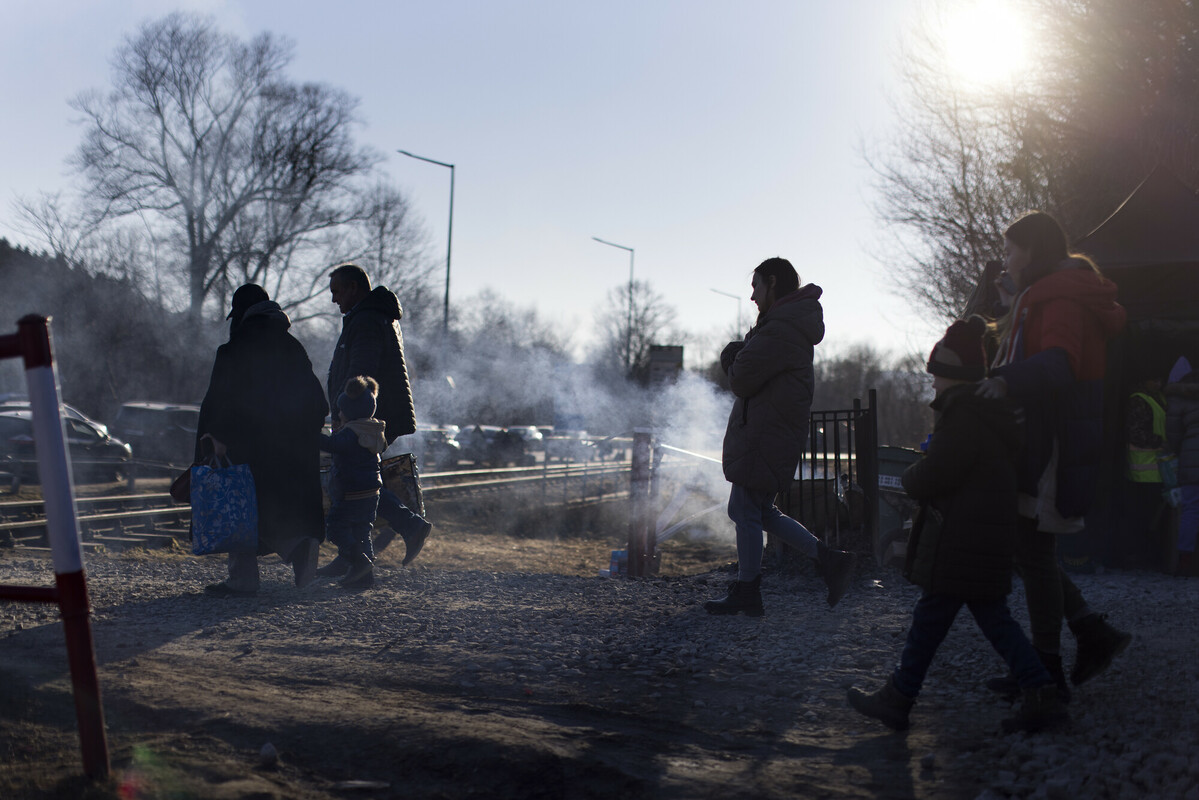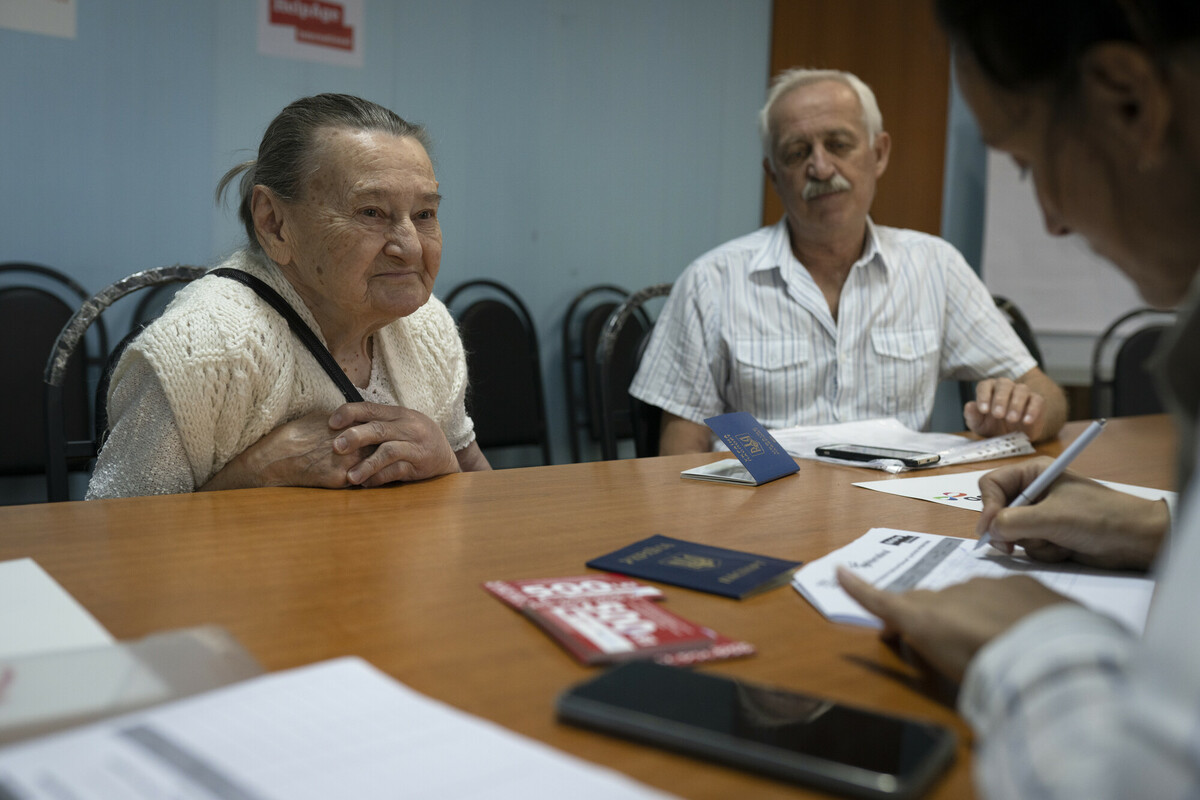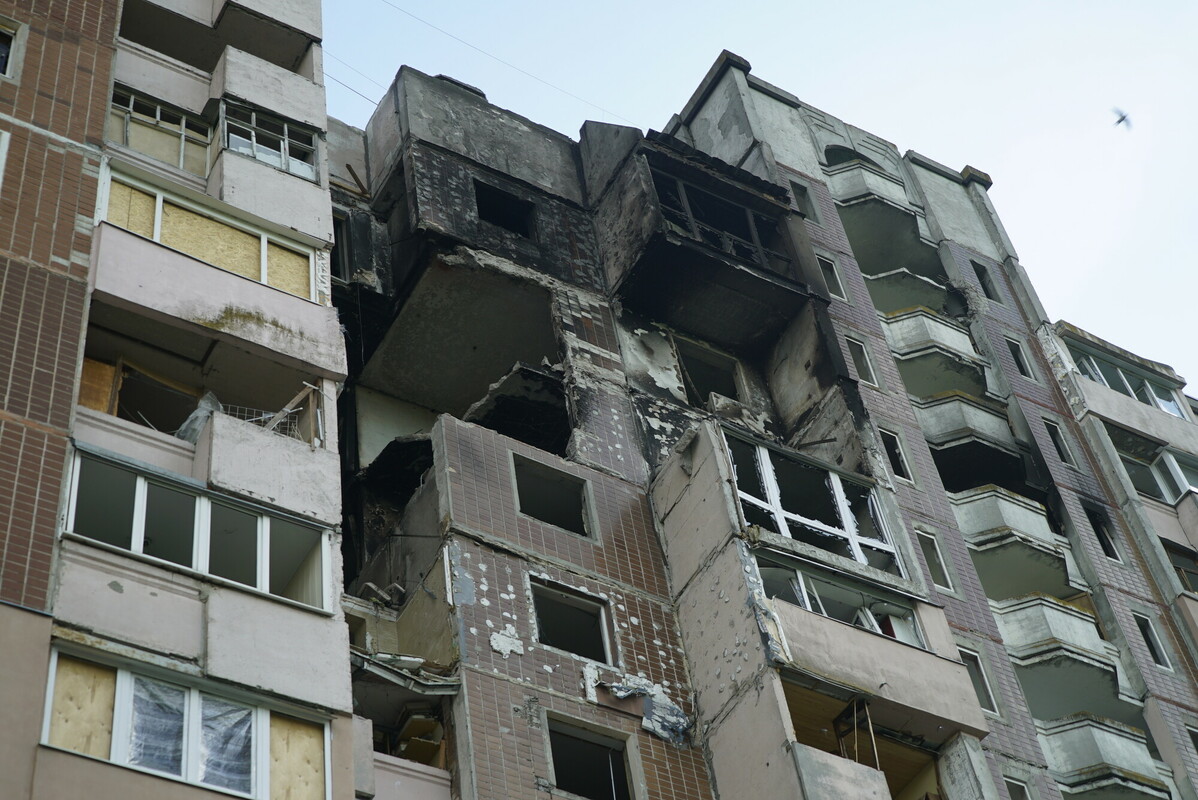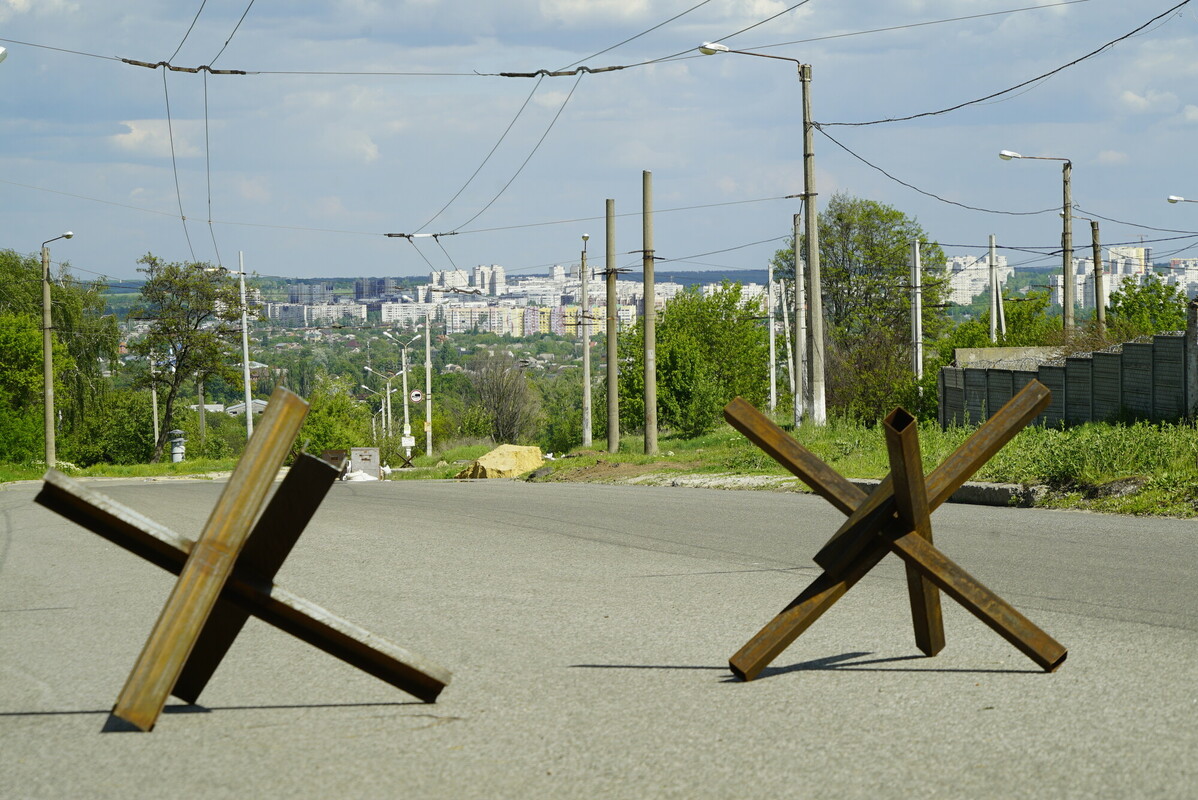As a second year of conflict in Ukraine approaches there is sadly no end in sight, and the humanitarian outlook remains desperate for millions of people.
In the short term, winter is not over, with freezing temperatures predicted through to March, potentially increasing the number of people forced to leave their homes to seek warmth amidst power blackouts. In the spring the ever-changing nature of the conflict looks set to bring new challenges for people in Ukraine with talk of offensives on both sides as the weather improves.
In interviews, aid workers were asked to assess the humanitarian consequences of three scenarios: continued conflict, stalemate and an end to hostilities. Under every scenario these aid professionals were unanimous in predicting huge need for humanitarian assistance. Whatever happens, the toll on civilians will remain heavy over the coming months and years. Vulnerabilities will be compounded, and some will increase as time goes on.
If fighting intensifies or spreads, more people will be displaced and may decide to flee Ukraine as refugees. In the most optimistic scenario of an end to the fighting, people will want to return home but may find their homes uninhabitable after being damaged or destroyed and public services and utilities heavily disrupted.

“No matter which scenario happens,” says Suzanne Zuidema, Education in Emergencies Specialist with Plan International who is working on the refugee response in Poland, “at some point the vast majority of people will realise they're not going home anytime soon. Even if the conflict ended tomorrow, there will be years of reconstruction.”
“It’s really difficult to speculate where this conflict is going,” says Achille Balthazar Despres, a spokesperson for the International Committee of the Red Cross (ICRC) which receives funding from DEC charity British Red Cross. “But what I can say is that the humanitarian needs are massive, and they will remain massive in the months to come.”
Funds from the DEC Ukraine Humanitarian Appeal are still available to member charities and are planned to be spent up until February 2025. The DEC is still accepting donations to the appeal to allow member charities to continue to bolster and adapt their plans.
If the conflict continues as it has or escalates further, the need for humanitarian assistance in Ukraine and the host countries is likely to deepen. Each shift of the frontline of the conflict drives more people from their homes, particularly when there is shelling of populated areas (as seen recently in Bakhmut and Soledar), with all the urgent needs that accompany displacement in terms of food, shelter and psychosocial support. DEC charities and partners will seek to respond to these new needs quickly and modify plans accordingly.
When conflict moves away from an area, allowing humanitarian access, there is much work to do. “Even when the contact line shifts and areas become more accessible to humanitarian workers, it takes an incredible amount of effort to bring back the economy in such locations,” says Marysia Zapasnik, the International Rescue Committee’s Ukraine Country Director. “[It requires the] rebuilding of livelihoods, the construction of houses, the construction of critical infrastructure that has been damaged: the schools, the hospitals, the local authority buildings and roads.”

Continued conflict is also likely to mean most refugees will want to remain where they are, requiring continued support, particularly for the most vulnerable people who are unable to work. It’s also likely to result in refugees continuing to cross into neighbouring countries, with numbers highly dependent on the nature and location of fighting. Renewed ground fighting around Kyiv, for example, would likely cause large numbers of people to flee.
Aid workers say that people crossing the border now, having lived through almost a full year of hardship, are arriving with greater needs and fewer resources than those who fled earlier in the conflict and require a higher level of support.
“The longer the conflict stays alive and increases in intensity, the poorer and poorer the people coming here [to Romania] are,” says Simion Bogdan, Executive Director of SERA, a local partner of DEC charity CARE International, “which means they will need more resources to be supported and it will be harder to integrate them.”
Fatigue among host communities, both in refugee countries and Ukraine itself, may also become an issue, with some organisations reporting irritation at the perception that displaced people are being prioritised over locals.

Governments in host countries are already struggling to cope with the needs of refugees, particularly in Moldova, which has a much lower GDP per capita than Poland, Romania or Hungary.
There may also be fatigue among international and institutional donors as the crisis wears on. “With any ongoing crisis, it becomes less and less appealing for donors,” says Andreea Furtura of the Romanian Red Cross. “So, it’s the same need but with less money, making it a bit more difficult to cover.”
If the conflict de-escalates and there is stalemate or ‘frozen conflict’ then there may be a mixed picture, with continuing need for basic humanitarian supplies in the east of Ukraine and more recovery and rebuilding possible in the west. Increased humanitarian assistance would be possible in many places which are currently unreachable due to the active conflict, allowing DEC charities to get help to new communities in need.
“Unfortunately, we know that even if the conflict doesn't intensify, it doesn't mean that the needs will stop”, says Achille Balthazar Despres of ICRC. “So our humanitarian response will need to continue to be massive – we are planning for the months and years ahead.”
Repairs to Ukraine’s battered power grid would likely be possible in this scenario, making it easier for DEC charities and their local partners to deliver their work at scale. A priority would be the rebuilding of livelihoods where possible to allow people to support themselves.
Many refugees may choose to stay in neighbouring countries even if the conflict stablises for fear of being displaced a second time if they returned due to any resumption of hostilities in this unpredictable situation.
Some refugees would likely want to return to Ukraine, but in many cases would need support on their return as they find homes damaged or destroyed and services and utilities decimated.

An end to hostilities is the outcome that aid workers hope for, but that few expect. This would allow for a recovery phase of the response, rebuilding homes and infrastructure in a similar way to the aftermath of a major earthquake. The authorities would likely take the lead in this, but DEC charities would help where they could, continuing to work and offer assistance to repair infrastructure as they have already. For example, Action Against Hunger would continue to work with local authorities to repair water networks that have been damaged by shelling, artillery fire and airstrikes, as well as supporting health facilities until supply chains for medicines were re-established.
In this scenario, refugees would be likely to return in large numbers, though families may want to wait until the end of the school term and older people and those with disabilities would find travel more difficult. DEC charities would help facilitate these journeys and once they had arrived, assist with rebuilding their lives, livelihoods and homes.
“Every single person we talk to, especially the children, say they will go back home,” says Eka Zhvania, Country Response Director for Romania and Moldova for DEC charity World Vision. “We are prepared for that scenario of large numbers of returnees to Ukraine and how we will support their basic needs.”
Peace in Ukraine would prompt a tremendous programme of humanitarian work. World Vision’s Ukraine Country Response Director Catherine Green says: “Even if this ended tomorrow, the level of destruction, the level of displacement, the interruption to schooling and livelihoods is huge. And that will create a new set of humanitarian challenges.

“If there was peace, there would be a new type of programming which would allow more recovery and rebuilding to happen. It might support the return of a lot of refugees from neighboring countries, which would then allow people to invest in rebuilding their homes and allow the government to focus on rebuilding infrastructure.”
Andrei Craciun, area manager for Save the Children Romania in Suceava and Iasi in northeast Romania, says: “Even if the conflict were to end tomorrow, it will take a long time until people no longer need the kind of support provided through the DEC funding.
“We have been very grateful to the DEC because we had an idea about how much funding we will receive, and that it will be long-term, and without it, it would be challenging to maintain this same level of response.”
UN OCHA Ukraine Country head Sarah Hilding der Weduwen says there will be a terrible legacy of conflict once peace comes to Ukraine, including widespread landmines and unexploded ordnances left behind.
Charlie Acland, Surge Team Programme Director for Concern Worldwide, agrees. “We're hearing reports of landmines and unexploded ordnances. And so there's a bit of a balance there between not rushing things and being sensible, but also being able to be very, very responsive as these frontlines shift.”

Looking to later this year, UN OCHA is concerned that the autumn could bring a further displacement of people who have returned home in the spring or summer but not managed to winterproof their homes before the cold weather returns.
Hilding der Weduwen calls this situation ‘humanitarian plus’ – a secondary displacement which could occur next October and November.
Of course, the ongoing consequences of this crisis are not just being felt in Ukraine and its neighbours, but around the world. Disruption to the global food supply caused by the conflict – with Ukraine and Russia major suppliers of grain and fertiliser – and consequent rising food prices are contributing to humanitarian crises in multiple countries, most urgently in East Africa which is also experiencing a historic drought.
Against this challenging global humanitarian backdrop, the DEC stands ready to launch appeals for other disasters in 2023 – its 60th anniversary year.
The scale of the response to the Ukraine crisis has seen innovative approaches to aid delivery and new ways of working with local partners which DEC charities plan to deploy in future humanitarian crises.
Appeal funds have provided a lifeline to millions of people whose lives have been torn apart by the Ukraine crisis. The DEC hopes that seeing the incredible impact their donations have had on so many inspires the UK public to give generously to future humanitarian crises around the world as they arise and bring relief to many more people affected by conflicts, natural disasters and other emergencies.